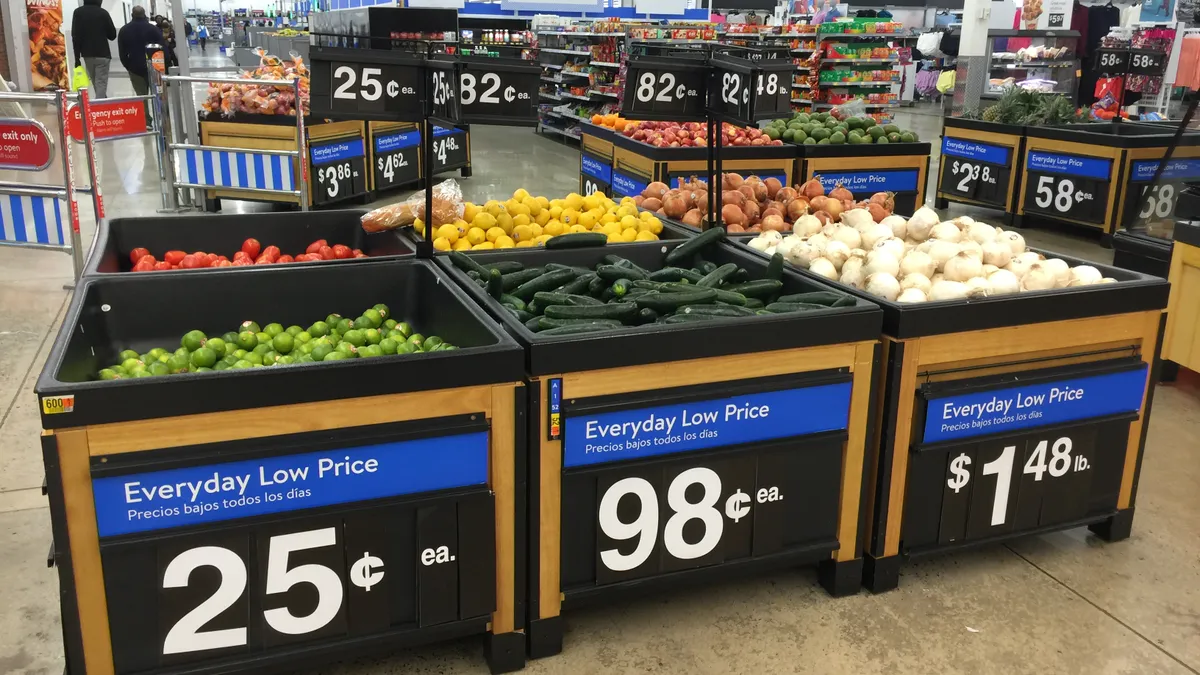Venture capital firm Consumer Equity Partners is assembling an investment fund that plans to inject hundreds of millions of dollars into retail technology companies from around the world, with a substantial portion of that capital coming from grocers, according to one of the firm’s managing partners.
The fund, which Consumer Equity Partners hopes will be ready to start making investments by mid-2025, is designed to allow retailers with limited resources to participate in — and potentially profit from — the development of promising innovations, said Tom Furphy, CEO and managing director of Consumer Equity Partners.
The firm is looking to raise between $200 million and $500 million for its Industry Innovation Fund and amass a quarter to half of that money from a group of between 15 and 25 retailers representing the U.S. as well as other countries, Furphy said. In addition to grocers, the firm wants to engage with convenience store chains, mass retailers, pharmacy operators and dollar stores, he said. Retailers that invest will be asked to put money into the fund over a five-year period.
While retail is poised to undergo significant changes during the coming years, an acute shortage of investment capital available to fund technology startups has given deep-pocketed retailers with billions of dollars to invest, like Walmart and Amazon, heavy influence over the sector’s future development, according to Furphy.
“There’s a lot that’s happening with new technologies that add opportunity and complexity to the shopping experience and the retail experience ... [so] there’s a real need here to have a pretty solid investment strategy forward if you’re a retailer,” said Furphy, a former executive of Amazon Fresh and Wegmans who currently serves as chief executive of Replenium, an e-commerce provider that offers auto-replenishment systems to retailers.
“The big guys are able to do that fairly easily because they have quite deep resources and large balance sheets. But as you start getting beyond the top couple of retailers, the opportunity is often much larger than the balance sheet of any individual retailer,” Furphy added.
Consumer Equity Partners intends to bring in the balance of the money it wants to deploy from an international array of strategic and institutional investors, according to materials the firm is sharing with potential investors. Furphy and his partners at the firm, JJ Van Oosten and Patrick Walsh, also plan to invest in the fund.
The fund will invest in companies in the early or middle stages of their development, but will require companies it supports to have already raised capital from other sources, according to Furphy.
Consumer Equity Partners’ initiative is an “opportunity to really change the customer experience, to really change the space globally, to really disrupt and improve,” Furphy said. “Not to disrupt for just disruption’s sake, [but] to actually improve the experience of the consumer and ultimately improve the fate of these retailers and the suppliers to these retailers.”
Furphy said Consumer Equity Partners has already had conversations with potential investors and portfolio companies, but said it was too early to identify them. He also said he could not provide details about the size of the financial commitment the firm wants individual retailers to make, adding that he and his team are still working to determine specifics.
Consumer Equity Partners believes technology is poised to disrupt retail in multiple ways as the sector evolves into a platform-based industry and wants to ensure grocers and other companies in the space play a role in how it changes. The firm has identified six aspects of retail as “particularly ripe for disruption and value creation”: shopping experiences, store operations, supply chains, retail media, foodservice and health-focused services, according to its pitch.
A key element of the firm’s strategy is that retailers should actively participate in the development of technologies that the Industry Innovation Fund will invest in. To accomplish that, Consumer Equity Partners intends to arrange tests of products its portfolio companies work on and require participating retailers to choose at least one of those pilots every two years to take part in, Furphy said.
“We don’t want just a bunch of tire-kickers and lucky loos. We want retailers that are committed to innovate,” Furphy said, adding, “We just really feel like there’s an opportunity to make some bigger swings as an industry. This will enable companies to participate in that and punch above their weight.”





















